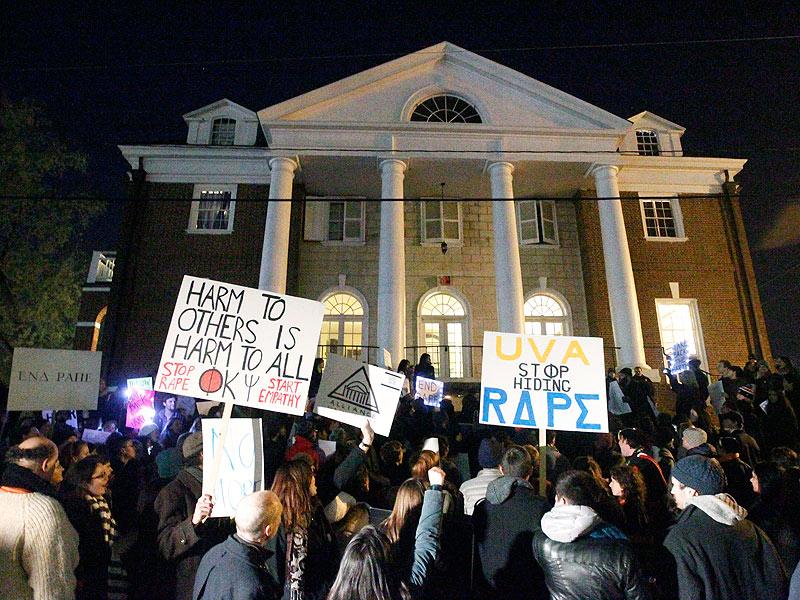Campus Controversy
Greek Life, Assaults, and the Media
The allegations against a UVA fraternity stirred up anger on campus. College students not only at UVA but across the country have been actively protesting.
In November, Rolling Stone released a story calling out the University of Virginia for an alleged gang rape case that occurred in 2012: http://www.rollingstone.com/culture/features/a-rape-on-campus-20141119. It got a lot of attention and people began to take sides. Some were for the victim, and others were for the name and reputation of UVA. Last week, Rollling Stone issued an apology for their lengthy 9,000-word article, saying that they should have talked to the accused Phi Kappa Psi brothers before publishing: http://www.rollingstone.com/culture/news/a-note-to-our-readers-20141205. Even if the particular accounts of the crime as reported in the article were not completely true, it certainly brought attention to an issue that seems to be ready to erupt at any moment. Why is it that one in five women in college are sexually assaulted?
People have been pointing fingers at the Greek organizations on college campuses and not without evidence. There are 86 colleges in the United States that are currently under federal investigation for campus assaults. When the Rolling Stone article came out, all Greek activities at UVA were suspended for the remainder of the semester. Senior Caroline Ritchey is not interested in joining a sorority next year.
“I feel like it [Greek life] should be something to have fun with but I feel in some cases and on certain campuses the culture allows it to be dangerous, so I think it just needs to be moderated,” said Ritchey.
On the other hand, senior Alia Haddad, who lists UVA as her first choice and intends to be a part of the Greek culture at UVA, sees things from a different perspective.
“I don’t know [which sorority] yet. I haven’t done my research but [I] definitely [want to join] because that’s a lot of networking that I think you need outside of college,” said Haddad.
The issue at hand is, if any of these college organizations are responsible for these devious crimes, what is it that needs to be done? With so many people worried about the universities’ reputations, it is hard to know which sources can be trusted on these complex issues. This is the critical response that The Washington Post had to offer: http://www.washingtonpost.com/news/act-four/wp/2014/12/05/rolling-stone-needs-to-come-clean-about-its-campus-rape-story/?tid=gravity_1.0_strip_2 against Rolling Stone’s story.
Senior Dalya Saadoon hopes to attend UVA along with her boyfriend who graduated from PFHS last year, but will not be getting involved with Greek life.
“He’s [her boyfriend alumni, Phillip Schroeder] one of the only people that are actually mad about it because of the actual cases…He was telling me that he wants to change something about it too,” said Saadoon.
Use this school as an example. The current senior class has 373 students. Half of that would be about 187 and this can roughly represent the female student population. With these statistics in mind, around 30 girls from our school could be sexually assaulted while in college. No student wants see this brutality happen to peers, so it is important that these cases are taken extremely seriously and not left unpunished.


